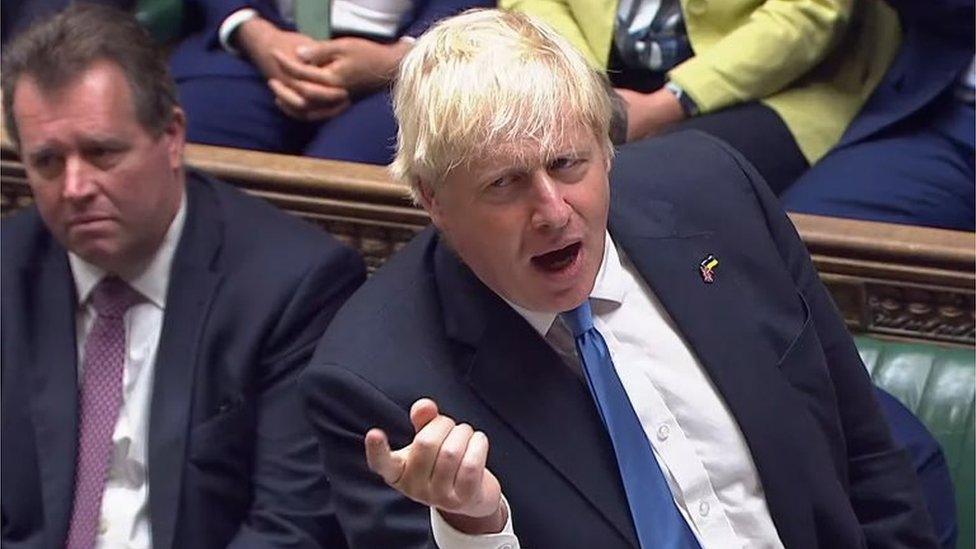Tory leadership debate: Five key moments from Truss-Sunak clash
- Published
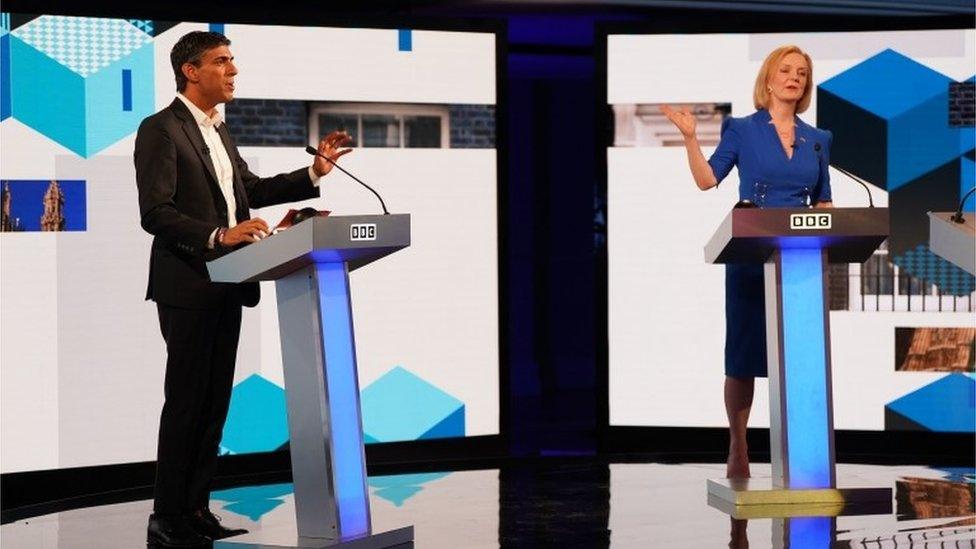
Rishi Sunak and Liz Truss have gone head-to-head for the first time in a live TV debate hosted by the BBC after a week of increasingly personal attacks.
One of them will be the next Tory leader - and the UK's next prime minister - voted in by members of the Conservative Party.
In an hour of testy exchanges covering economic policy, China and even earrings - what were the standout moments?
Were they nice to each other?
The short answer is no (even if they sometimes pretended).
Within minutes, the two candidates were at loggerheads - and once again it got very heated, with multiple interruptions.
Mr Sunak needs to make up ground if the polls are to be believed. He tried to get on the front foot and make the case for his cautious economic strategy right away, accusing Ms Truss of risking a huge increase in interest rates with her plans to cut tax immediately.
He repeatedly came back to this, accusing his rival of wanting a short-term sugar high, which would be followed by an economic crash.
Ms Truss disputed Mr Sunak's claim and argued she'll start paying back debt within three years. She accused him of "scaremongering" (more on the Brexit rhetoric later).
Both candidates did try to be nice at certain points. Mr Sunak said he admired Ms Truss.
She said he had good dress sense (after her supporter, Culture Secretary Nadine Dorries, questioned the price of Mr Sunak's wardrobe - and contrasted it with Ms Truss's budget earrings).
Despite the dress talk, there is a real battle for the ideological soul of the Conservative Party and there is a lot at stake. One of these two candidates will be prime minister in just over a month.
But tonight was another example of how split the two candidates are on the party's future.
A friendly exchange of ideas this was not - and you can see why some senior Conservatives are nervous about long-term damage being done to the party.
The battle over the economy and tax
With inflation at a 40-year high, economic policy has become the main battleground in this increasingly fractious leadership contest.
Taking a combative tone, Mr Sunak and Ms Truss attacked each other's tax plans, producing some of the most explosive moments of the debate.
Ms Truss has pledged about £30bn in immediate tax cuts, arguing they would boost economic growth, while Mr Sunak has said he would only slash taxes once inflation was under control.
Ms Truss said the UK was heading for a recession if the country followed Mr Sunak's economic plans.
Visibly peeved and shaking his head at that, Mr Sunak shot back with a bullish retort. He insisted the tax burden - the highest for 70 years - was the result of the unprecedented levels of government spending needed to keep the economy afloat during the Covid-19 pandemic.
On Ms Truss's tax plans, Mr Sunak said: "I don't think that's right, I don't think that's responsible, and I certainly don't think it's Conservative."
Squabbling ensued, with both candidates talking over each other, prompting moderator Sophie Raworth to intervene.
Clamping down on China - and TikTok
A big debate on foreign policy has been on the UK's relationship with China. Mr Sunak and Ms Truss have been warning about the threat from the state. But they've also been clashing on who came to that conclusion first.
It got heated here, too.
Mr Sunak has been calling for a clampdown on Confucius Institutes in the UK. He denied having a dig at Ms Truss on this (she was an education minister when some of them opened).
But he did suggest she had been on a "journey" when it came to China - arguing she had previously argued for a golden age in relations.
Significantly, Ms Truss said she would like to see a clampdown on Chinese-owned companies like TikTok.
There weren't any details - but many will be asking what measures she would introduce as prime minister. But she also tried to call out Mr Sunak - arguing that he was a recent convert to a clampdown on China. She said the Treasury had wanted closer ties when he was chancellor.
Brexit rhetoric returns
Mr Sunak backed Brexit. Ms Truss backed remain, but has since become an enthusiastic supporter of life outside the EU.
What was striking tonight was that Ms Truss used some of the language of the Leave campaign. In response to questions about her economic plans, she accused Mr Sunak of "scaremongering" and "Project Fear".
That isn't just borrowing from the referendum handbook - it's a direct lift from the campaign.
Mr Sunak was having none of it - reminding Ms Truss that he backed Leave, and so knew all about Project Fear.
The spectre of Boris Johnson
Speak to Tory MPs and many will admit their constituents aren't happy Mr Johnson is standing down.
The spectre of the cabinet mutiny that brought the prime minister down is going to be a feature of the next few weeks.
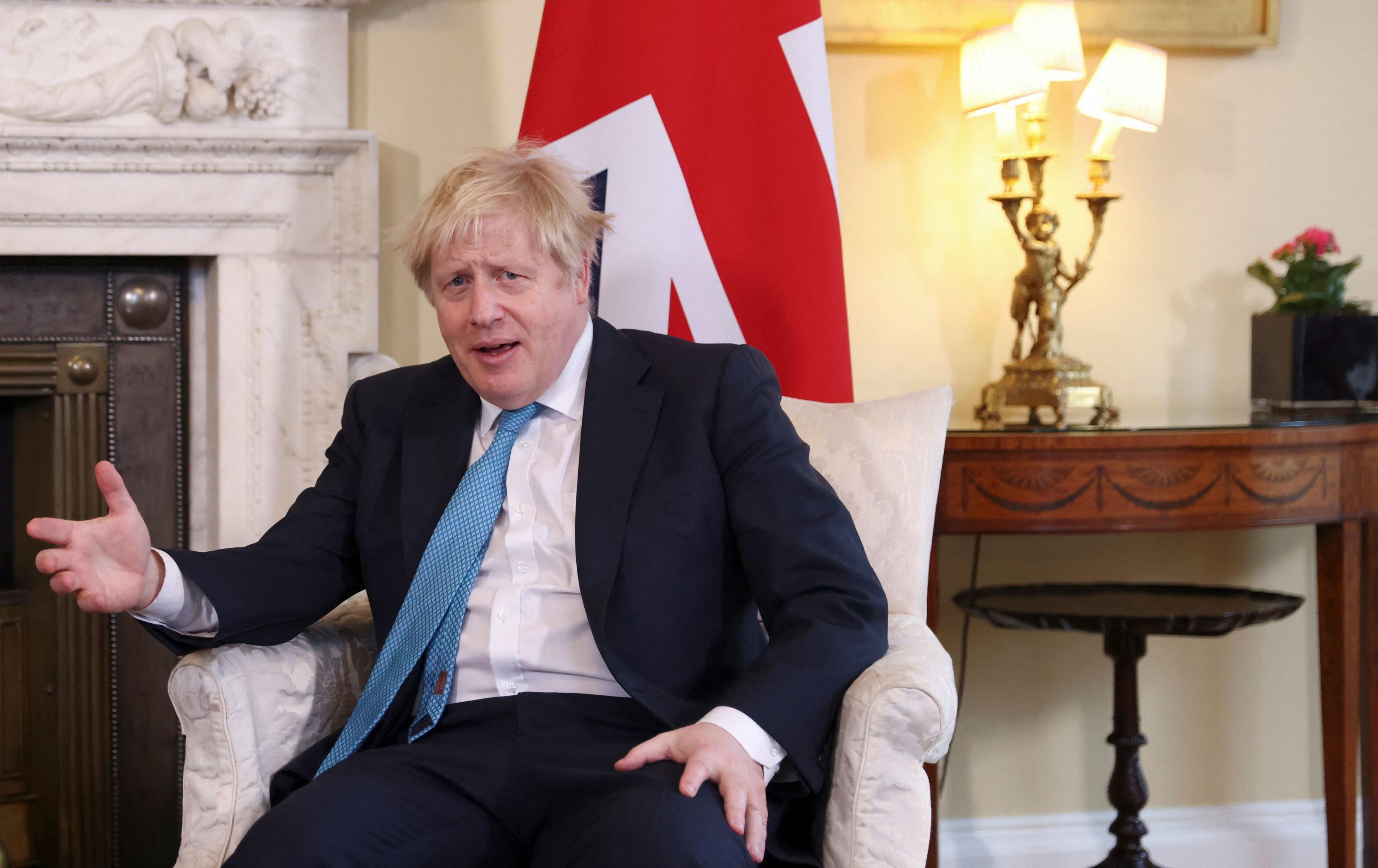
Mr Sunak is seen by some as betraying the prime minister. As a result, many of Mr Johnson's allies don't want the former chancellor to succeed him.
Mr Sunak said tonight he was proud of the work he did in government, and resigning was a difficult decision he had made on principle.
Ms Truss has the backing of some Johnson loyalists. She flagged tonight that she was an early backer of Mr Johnson and praised the "brilliant job" he did winning the 2019 general election.
Significantly, she said tonight that the "mistakes" he made in office should not have brought him down.
The debate ended with the quickfire round and one of the final questions was: what marks would you give Mr Johnson out of 10.
Ms Truss said seven and then after some prevarication Mr Sunak came out with 10/10 for delivering Brexit - to some applause.

Related topics
- Published25 July 2022
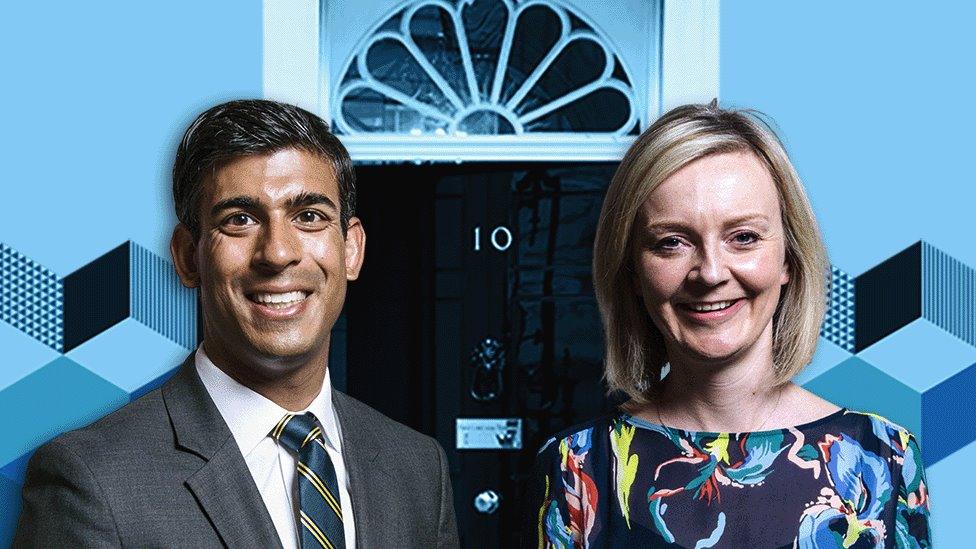
- Published21 July 2022
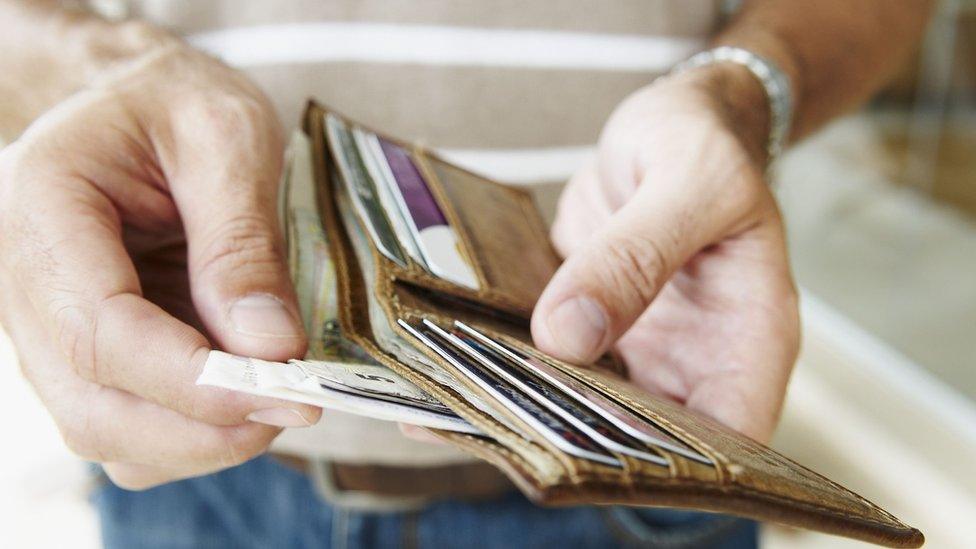
- Published21 July 2022

- Published20 July 2022
